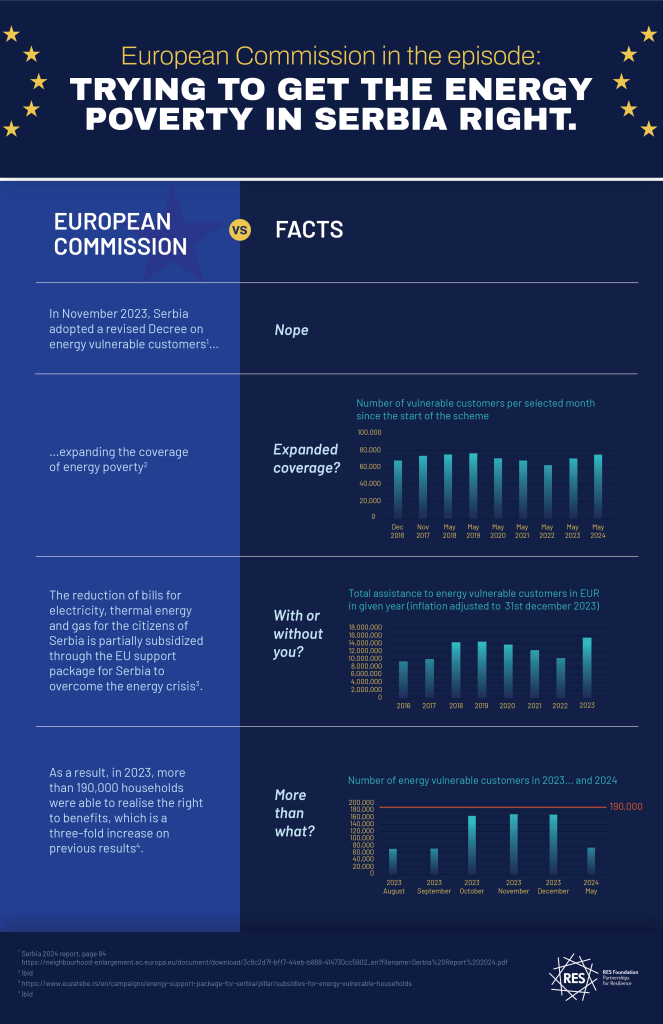We at RES Foundation analyse and distribute knowledge for evidence-based policy making in energy and climate change. We focus on the millions of households facing the consequences of energy poverty and the ways in which (if at all) public policies mobilise public money to support their wellbeing in sustainable manner.
We have worked with the Governments for a decade. In the past few years, we have also engaged with the institutions of the European Union. Out goal is to share our views on how the diverse mechanisms of the EU taxpayer’s money use can be better utilised to support vulnerable people of the Western Balkans. In spite of IPA, WBIF, Energy support package, Growth plan, millions of energy poor households in the Western Balkans remain invisible, while the EU taxpayers’ money is reaching those that are better off.
To change that, firstly we need to admit the above mentioned failure and then articulate a wish for a change.
The European Commission’s Serbia 2024 report was another missed opportunity to start fact-based communication on the effects of the support of the EU taxpayers to people affected by energy poverty. The facts in this report and other recent communication materials are wrong. It is possible to use the old saying and state „so much worse for the facts“. But then, it is also so much worse for the vulnerable groups. And everyone else, since it is in public interest, that goes beyond humanity, to support them.
Knowing the needs, finding the means, navigating the ways, charting our maps, monitoring our routes. Time, efforts, diligence, persistence. All are indispensable in leaving none behind.
Here is a message to each one of us participating in creating the EU support to Serbia, but primarily to those accountable to the EU taxpayers: “Please be better at how you support the energy poor in the Western Balkans”. It matters.

